Tiger Shroff decides to put his fitness prowess to test
Actor Tiger Shroff known for being a fitness junkie decided to put his fitness prowess to the test.
Stretching will help you increase flexibility, reduce tightness and ultimately make you safe from undue strain or injury during your workout
Deepa Gupta | New Delhi | September 6, 2019 4:41 pm

(Representational Image: Getty Images)
Regular stretching before and after workouts is important for a well-rounded fitness routine. It improves flexibility and the ability of joints to move through their full range of motion. Stretching muscle to the point of mild discomfort and holding that position for at least 30 seconds or longer can make it flexible. The flexibility demands depend on the type of activity. A gymnast requires different flexibility levels than to those of a runner. However, too little or too much flexibility, both may be detrimental for physical activities of any kind. Less flexibility than required may increase the risk of muscle strain injury whereas too much flexibility may reduce the muscle’s natural spring. So there should be a balance between the two stages. By doing rigorous workout that contracts the muscles and never stretches them, your muscles will end up imbalanced. Imbalances can cause some muscles and joints to overcompensate for other ones that are too tight to engage properly. This may lead to discomfort.
Muscle injuries usually happen when the muscle is put under too much stress, typically when it is stretched under pressure. The injury occurs not because the muscle is not flexible enough, but because the muscle is not producing enough force to support itself. The most recent studies found that stretching exercises help reduce injuries like ligament tears, muscle tear, strains and sprains. If your objective is to increase your range of motion so that you can do the splits more easily, then you should stretch.
Advertisement
Regular stretching outside periods of exercise may increase power and speed and reduce injury. The best time to stretch is when the muscles are warm and supple. This could be just after warm-up or exercise. A post-exercise stretch slows down your breathing and heart rate and brings the mind and body back to a resting state. Also then your muscles are loose and stretchy, they are less restricted. This allows you to move them under a full range of motion.
Advertisement
Stretching exercises for various body parts that you should include in your daily fitness regimen
Neck release
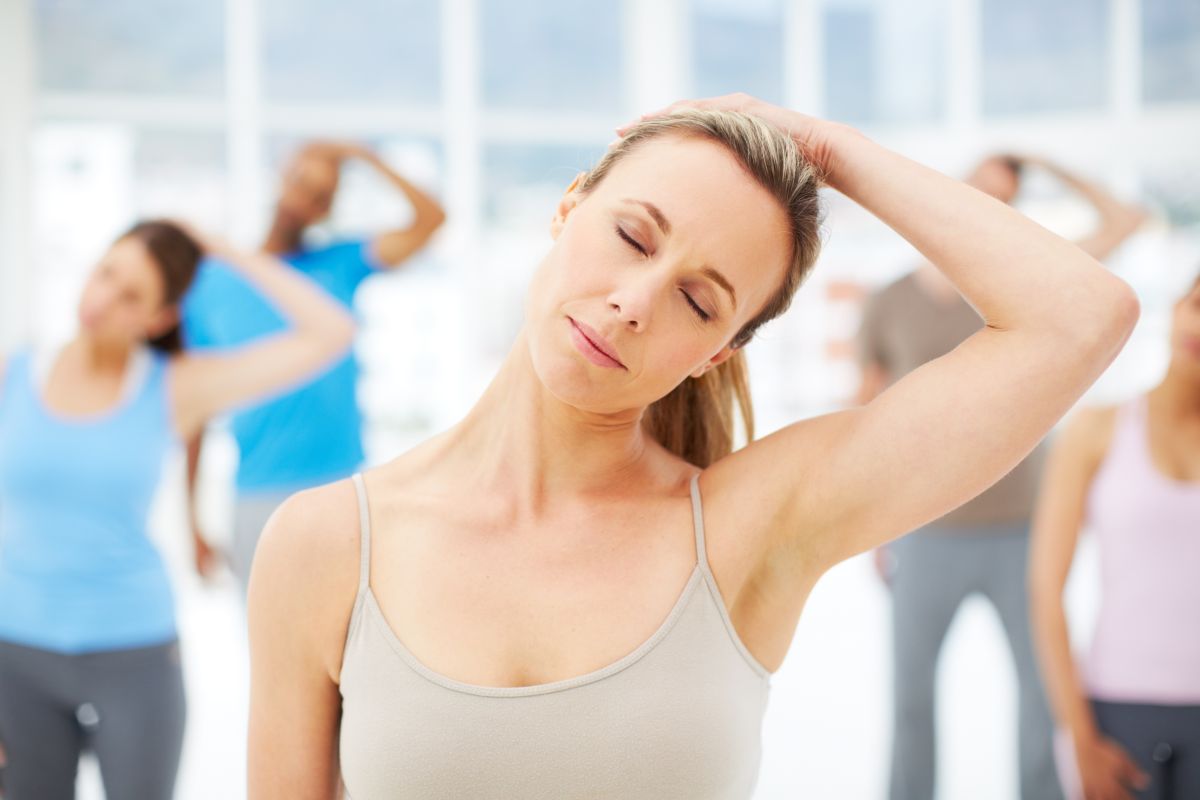
Stand with feet shoulder-width apart. Drop your left ear to your left shoulder. To deepen the stretch, gently press down on your head with your left hand. Hold for 30 seconds to one minute to stretch your neck.
Standing shoulder squeeze
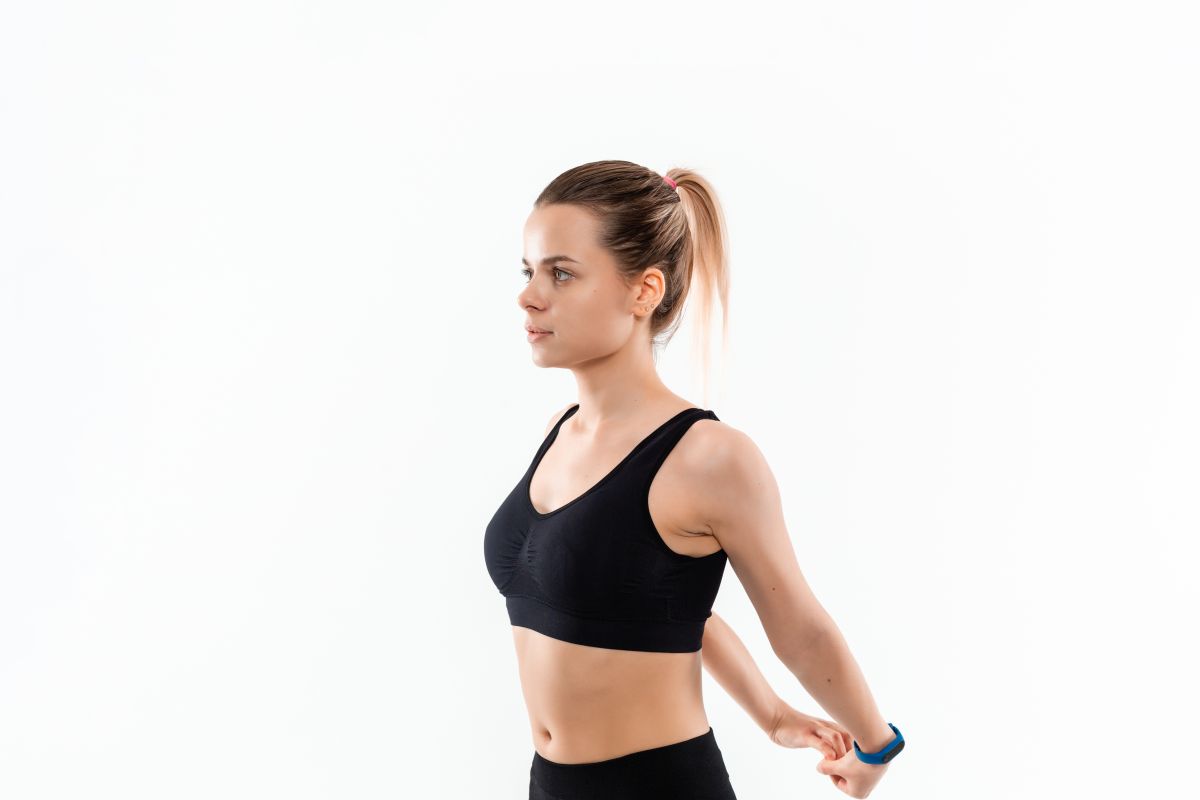
Stand erect. Clasp your hands behind your lower back. Straighten and extend your arms and squeeze your shoulder blades together. Do this for 30 seconds to one minute and then release. Repeat five to 10 times.
Triceps stretch
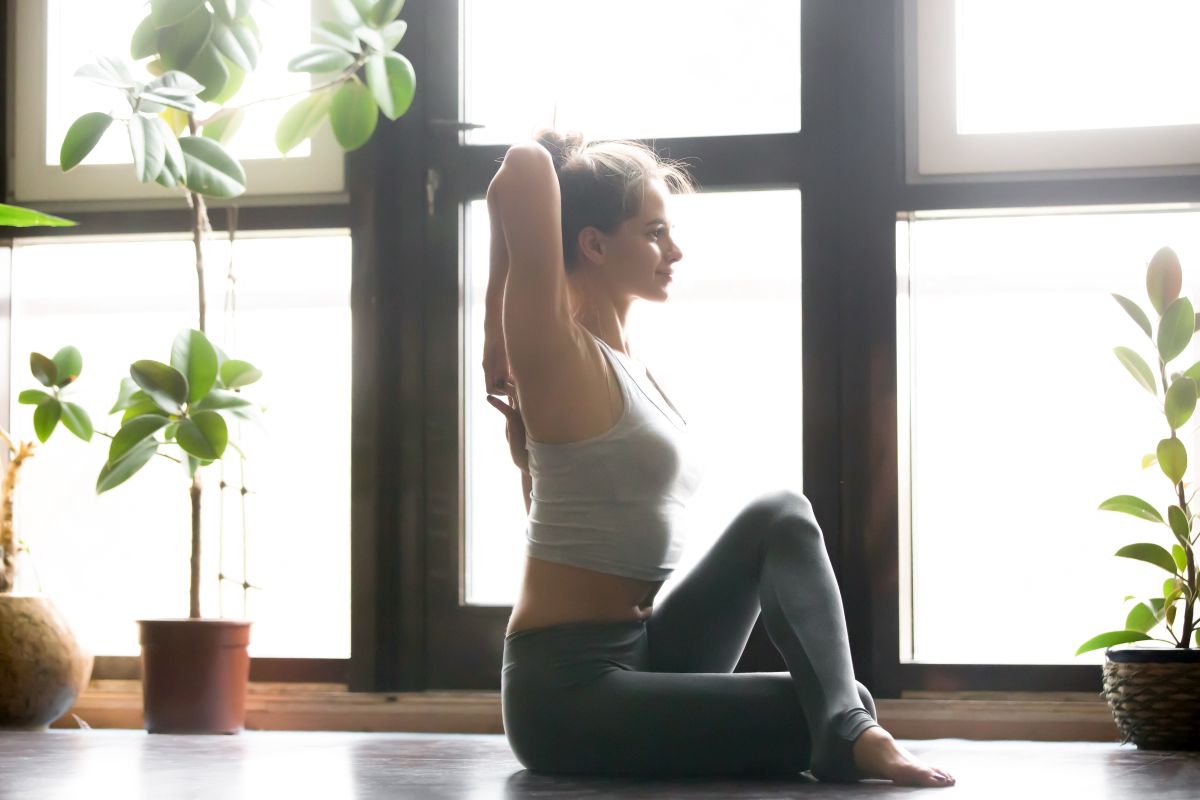
Stand tall with feet hip-width apart, arms extended overhead. Bend your right elbow and reach your right hand to touch the top middle of your back. Reach your left-hand overhead and grasp just below your right elbow. Gently pull your right elbow down and towards your head. Switch arms and repeat. This exercise stretches neck, shoulder, back and triceps.
Side bend stretch
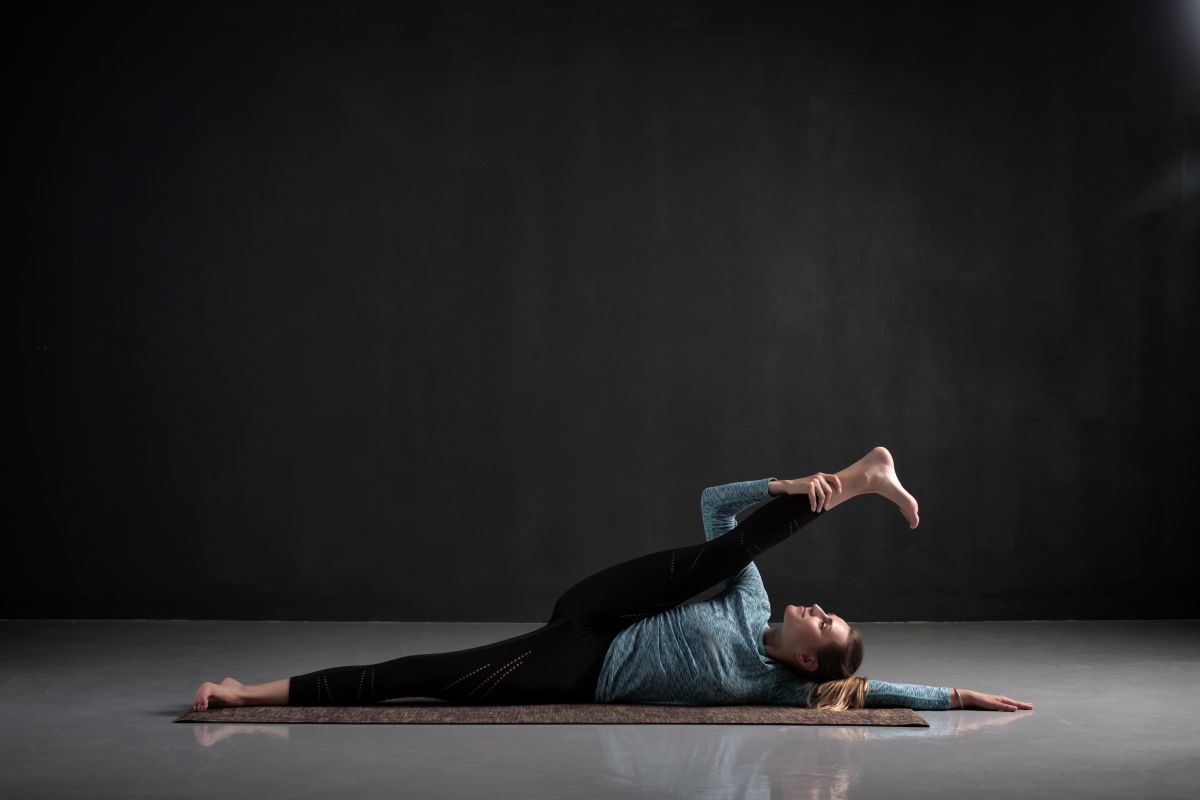
Kneel on the floor with your legs together, back straight and core tight. Extend your left leg out to the side. Keep it perpendicular to your body. Extend your right arm overhead, rest your left arm on your left leg and gently bend your torso and right arm to the left side. Hold this stretch for 30 seconds to one minute. Repeat on the other side. It stretches the groin, hips, inner thighs and oblique.
Standing hamstring stretch
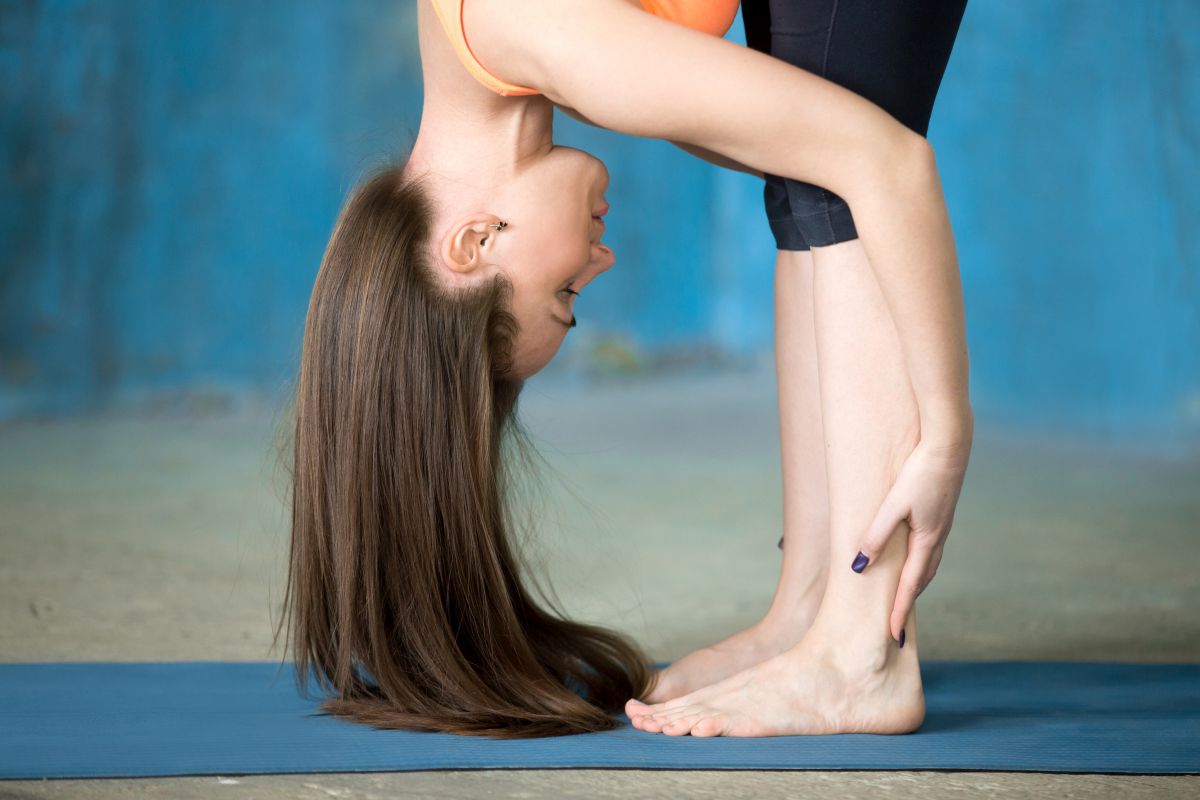
Stand tall with your feet hip-width apart, knees slightly bent and arms by your sides. Exhale as you bend forward at the hips, lowering your head towards the floor while keeping your head, neck and shoulder relaxed. Wrap your arms around the back of your legs and hold for 30 seconds to one minute. Bend your knees and roll-up. It stretches the neck, back, hamstrings and calves.
Lunge with spinal twist
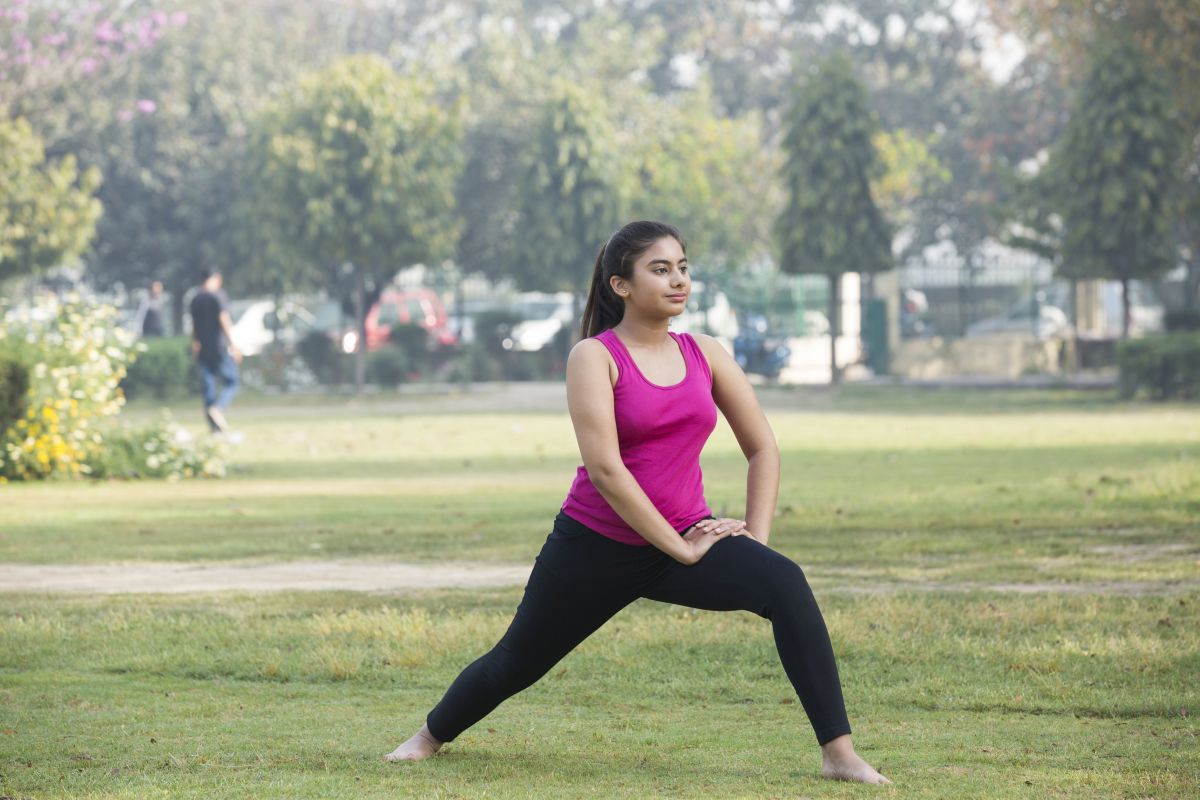
Start standing with your feet together. Take a big step forward with your left foot, so that you are in a stunned posture. Bend your left knee and drop into a lunge keeping your right leg straight behind you with your toes on the ground, so you feel a stretch at the front of your right thigh.
Lunging hip flexor stretch

Kneel on your left knee. Place your right foot on the floor in front of you. Lean forward, stretching your left hip towards the floor. Squeeze your butt. Hold for 30 seconds to one minute. Switch sides and repeat. Stretches hips, quads and glutes.
Knee to chest stretch
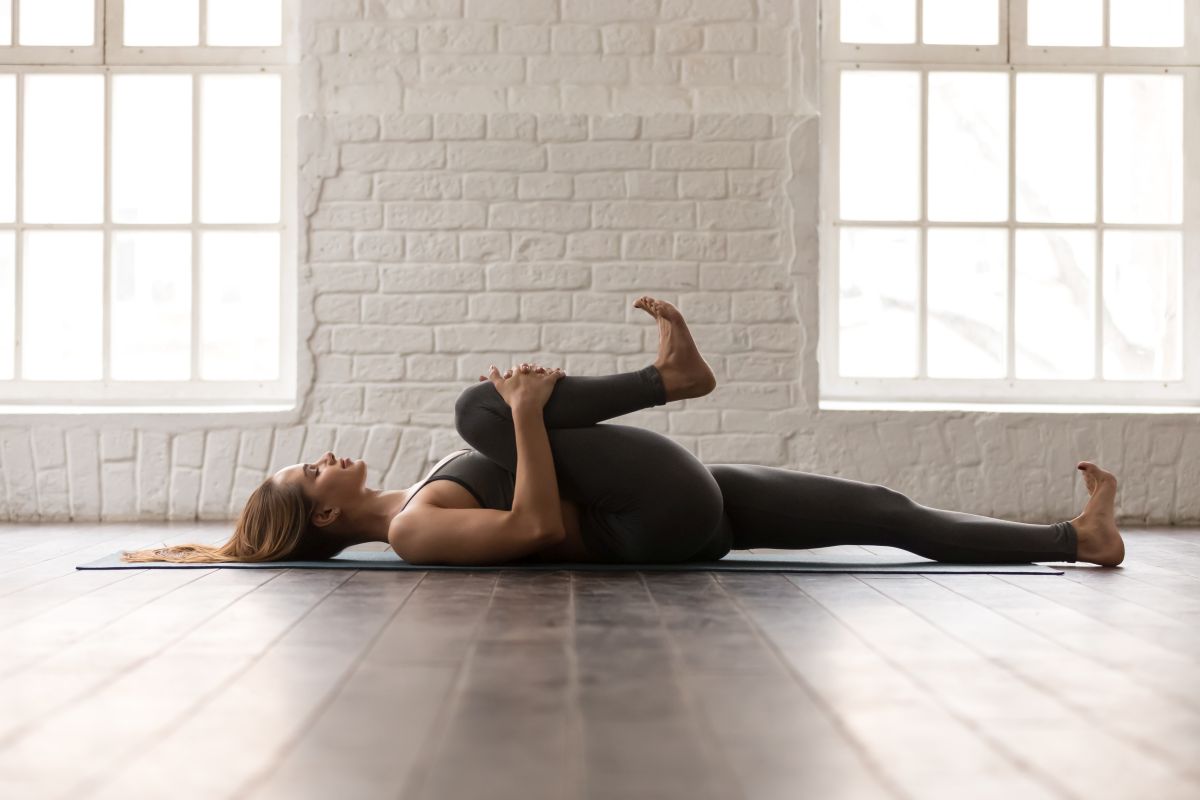
Lie on your back with both legs extended. Pull your right knee into your chest, while keeping the left leg straight and your lower back pressed into the floor. Hold for 30 seconds to one minute. Repeat on the other leg. Stretches lower back, hips and hamstrings.
Lying quad stretch

Lie on one side. Keep your bottom leg straight and bend your top knee so that your foot is by your butt. Hold your top foot with your hand, pulling it towards your butt. Keep your hips stable so that you do not rock back as you pull. Hold for 30 seconds to one minute. Switch sides and repeat. It stretches quads.
Extended puppy pose

Stand on all fours. Walk your arms forward a few inches and curl your toes. Push your hips up and back halfway towards your heels. Push through the palms of your hands to keep your arms straight and engaged. Hold for 30 seconds to one minute. It stretches back, shoulder and glutes.
You need to take an active role in maintaining and improving the length of your muscles so that you can enjoy your abilities without pain. Stretching may be uncomfortable and may take time and might not give you the same rush that a run will, however, you cannot do just strength training or cardio without putting yourself at risk for pain and injury if you are not doing stretching exercises.
Advertisement
Actor Tiger Shroff known for being a fitness junkie decided to put his fitness prowess to the test.
Actor-fitness enthusiast Milind Soman and his wife Ankita Konwar made the most of their vacation in Dubai by pushing their fitness limits.
Seems like Salman Khan is back in fitness mode. After leaving everyone impressed by effortlessly climbing the tree at 59, he treated the fans with some jaw-dropping pics from his latest workout session.
Advertisement
